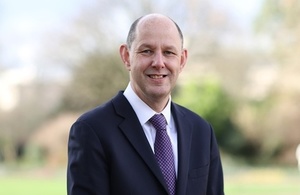Atlantic salmon are in decline internationally meaning fewer and fewer of these iconic fish are returning to rivers to reproduce than have done previously. This cutting edge project is the first of its kind for Cumbria and will uncover more about the movement of fish from the River Derwent to the Irish Sea as well as the issues they face along the way. Through partnership with the University of Glasgow the project aims to open avenues to improve the declining salmon stocks on the Derwent.
Phil Ramsden from the Environment Agency said
“We are very excited about this project. This is a huge opportunity for the River Derwent salmon population, and all those who are interested in it.
Using special tracking technology, this project aims to shed light on the journey our salmon make through the River Derwent and into the Irish Sea as well as highlighting the issues they face along the way.
This is a pioneering project for Cumbria, and one of only a few ever conducted worldwide. ‘’
The Environment Agency have formed a strong partnership with the University of Glasgow, who will be leading this study, through a PHD studentship. With strong links to other key salmon tracking projects, such as “The Missing Salmon Project” this is a huge opportunity for the River Derwent to be on the forefront of scientific understanding in this area.
Amy Green, PHD student at the University of Glasgow said
“I am excited to be starting this project and working alongside partners. This research is really exciting and will hopefully better inform all parties involved about the essential life stages and the highly important migration of Atlantic salmon. This research will also help identify river barriers to survival and provide future strategies to better assist migrating salmon populations in the near future.”
Prof Colin Adams from the University of Glasgow said
“We are delighted to be a part of the group delivering this highly innovative project that will help unlock some of the secrets of salmon migration, which will lead to improved management”
With a separate EU funded project using similar monitoring equipment in the Irish Sea from 2020 to 2022 the Environment Agency will be in the enviable position of potentially being able to track fish not only through the River Derwent, but also far beyond the local coastline.
This is a real chance to work with the leading experts in this field to understand a part of the Derwent salmon’s lifecycle that currently, nothing is known about, potentially putting the Environment Agency in a better position to make decisions that will help the decline in salmon stocks locally and internationally, this is a very significant and exciting project for all involved.


